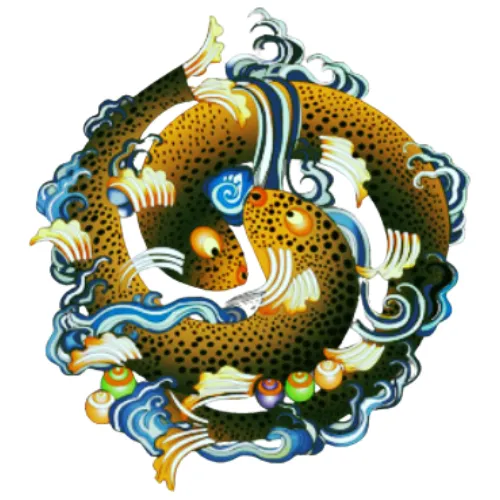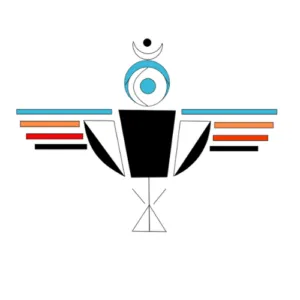The Bipolar Buddhist

A Little About My Path
Thank you for taking the time to visit my personal page and allowing me to share ideas, information and processes that I have created throughout the decades-journey of my life experiences.
Threre are many facets to what I do and who I am in there are the writings, the creation of meditations the crafting and instructing of flutes, and drums for medicine and misic, the shamanic journeys of plant medicine that I facilitate.
To articulate the experiences and training I have done to get here I think would be boring for the both of us.
I will start with what I feel is useful to you. This page is a resource for what has worked in my life and to shatre that with you.
These tools I am sharing are a combination of different tools in what has worked for me in very critical times of my life, as well as moments of joy and great gratitude.
My writings were crafted for myself as an inquiry with a big question mark of “what if”, and "how" and created an opening to gain insight for my self to question the current situations, thoughts and emotions in my daily life.
The intention was the breaking down of barriers to see what is not working for me in those fragile moments when I am searching for answers in understanding my own life’s circumstances and emotions.
Some writings will express and map out how I got there ” to the place of joy and gratitude.”
You can find these on this website under Inights and ah-ha's.
Fortunately for me, I had two parents. Under the influence of religion at the time in the late 70’s, they were trying anything they could to keep a family together.
So in the very early years of my life I was introduced to and trained in Transcendental Meditation–a practice that proved more valuable to me than anything else at that time. Looking back at life’s difficulties,
I can see the purpose my parents served, as difficult as things were at the time, to force me into the inquiry stage to look for better answers or my answers to a better way of life that had not been working at all.
It has not been until the last 25 years that I have I become fully engaged in the Buddhist practice as a tool, which seemed a very natural fit that went hand in hand with my martial arts practice. All of which are some form of a mindfulness or meditation practice.
A few years after I began my Zen Buddhist practice I was introduced to a few other resources of emotional transformation or self-reflection.
These are more based on Ontological review (self review), a way of looking at your self and more importantly how you are being in the reality of others. This was something that enhanced my “Zen” style Buddhist practices at this time.
About a decade ago I was introduced to a Buddhist-based Psychology called “Naikan” which, translated, means “inward-looking”.
This practice involves a review of small sections of your life based on three question that will bring you to the current direction of your attention to one of mindfulness and gratitude that is lasting and alive throughout your life.
These few practices and inward-looking technologies would eventually fold into what I do in life today, which through years of practice on my self and others has opened me up to a better life with a better basis of understanding.
The importance in my writing and my coaching is my desire to share some of my own understandings, teachings and techniques that I have found through decades of meditation and contemplation and that have proven invaluable for me in creating a more fulfilling life and style that has more ease and joy to it.
Having considered myself mostly atheist or agnostic for the last 20 or so years having much separation from dogmatic views of standardized religions, I was certainly not what I considered a spiritual person.
Then, a few years ago through some family members, I was introduced to the plant medicines of the Amazon and the ancient shamanic practices.
This was an unfolding in my life that was totally unexpected. I have since then been taken on as a Shaman’s apprentice, and as a result combined all of the practices in my life as the most important practice of my life: A grounding in Buddhism with the spiritual aspects of the Shaman.
” This work is found in the practice. I must always practice.”
Currently I have a small part-time coaching and consulting practice in Salt Lake City. Any consultations I provide are not meant to replace any professional therapy
Start Changing Your Life by Changing Yourself
I am a certified Naikan Morita Therapy facilitator, educator, instructor, and coach through the ToDo Institute.
I have worked with dozens of people over the last decade, and I am always available for private coaching:
Meditation and mindfulness
Niakan japanese psychology gratitude work
Energetic clearing intuitive work
Raising energetic and emotional clearing work with sounds and vibration
What is Naikan?
Naikan therapy is a structured self-reflection and introspection technique that originated in Japan in the 20th century.
It was developed by Ishin Yoshimoto, a Japanese Buddhist, as a method for personal growth, self-awareness, and fostering a sense of gratitude and mindfulness.
Naikan, which means “looking inward” or “introspection” in Japanese, is often used as a therapeutic tool in psychology and counseling.
The key principles of Naikan therapy include:
Self-reflection: Naikan encourages individuals to reflect on their lives, actions, and relationships. This reflection typically involves reviewing one’s thoughts, feelings, and behaviors in a structured and systematic way.
Gratitude: Naikan places a strong emphasis on recognizing and appreciating the things we often take for granted, such as the support and kindness of others, our daily necessities, and the efforts made by people in our lives.
Three Questions: Naikan therapy typically involves asking oneself three fundamental questions:
a. What have I received from others? (related to the support and care received from others)
b. What have I given to others? (related to one’s own actions and contributions)
c. What troubles and difficulties have I caused to others? (related to the times when one’s
actions may have negatively impacted others)
Balance and self-awareness: Naikan helps individuals gain a more balanced and realistic view of themselves and their relationships by acknowledging both the positive and negative aspects of their interactions with others.
Mindfulness: Practicing Naikan encourages mindfulness by focusing on the present moment and fostering a deeper understanding of one’s thoughts and emotions.
🌿 What Is Morita Therapy?
Morita Therapy is a Japanese approach to well-being that teaches us to stop fighting our feelings and start living from purpose. Rather than trying to fix or eliminate emotions like anxiety, fear, or sadness, Morita invites us to allow them like weather passing through and to return our focus to what truly matters.
Developed by psychiatrist Shoma Morita, this method blends mindfulness, acceptance, and disciplined action. It reminds us: we don’t need to feel “ready” to take the next step. We can act with our discomfort, not after it’s gone.
At its heart, Morita Therapy is a gentle, powerful practice of observing what is, accepting what we feel, and choosing to live in alignment with our deeper values not our passing moods.
Accept feelings without resistance
Don’t try to fix, suppress, or avoid emotions. Let them be even uncomfortable ones like anxiety or sadness.Focus on behavior, not emotions
Actions not moods are what matter most. You can act with purpose even while feeling uncertain or distressed.Live according to purpose, not comfort
The goal isn’t to feel good, but to live well. Value-driven action takes precedence over emotional control.Feelings change naturally like the weather
Emotions arise and pass on their own. Trust that they’re temporary and not always meaningful or accurate.Observe, accept, act
A three-step attitude:Observe what you’re feeling.
Accept its presence without judgment.
Act in alignment with your values or responsibilities.
Copyright 2026. All Rights Reserved.

Facebook
Instagram
Youtube
TikTok